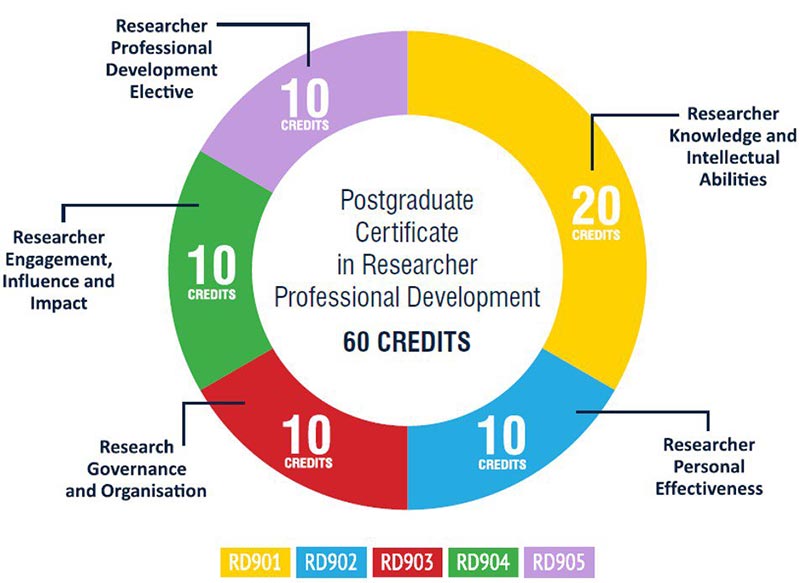The Postgraduate Certificate in Researcher Professional Development (PG Cert RPD) is the first academic award in the UK to recognise and reward the wide array of skills and experiences that postgraduate research students achieve during their PhD research.
Overview
The PG Cert RPD are mapped to the Researcher Development Framework which sets out the key competencies and behaviours of a successful researcher.
There are 5 classes in the PGCert RPD. You'll need to gain 60 credits across these classes. You will need to gather and record evidence of your development activities and demonstrate that you have met the class learning outcomes through a short, reflective essay for each class.
The PGCert RPD has no set curriculum or timetable. You, with the support of your supervisor, will identify the development activities best suited to your training needs (we can help you with this too – please get in touch). Activities that contribute to the PGCert RPD classes can be PGT classes, courses and workshops, and any experiential activities.
